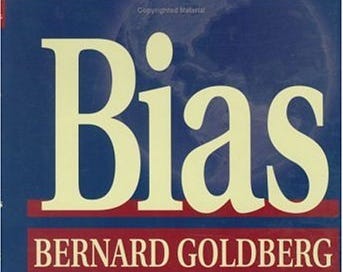
A Few Words About a Friend Who Changed My Life
On February 8, 1996 I got a phone call that changed the course of my life.
The call was from a fella named Jerry Kelley, a building contractor who was born and raised in Enterprise, Alabama and made Gomer Pyle sound like Laurence Olivier. Jerry had repaired my house in Miami after Hurricane Andrew blew through the area. We became friends, two boys from the South: Jerry from South Alabama, I from the South … Bronx.
As I wrote in Bias, “Jerry Kelley saved my family and me. He repaired the damage the hurricane had done to our house. He was always there when we needed him. And we became friends, a kind of odd couple. We talked often, mostly about politics and current events, which he loved.”
When he called that night he was pretty upset. “Did you see that ‘Reality Check’ story on Dan Rather tonight?” I told him I missed the CBS Evening News and asked what the problem was.
“The problem is that you got too many snippy wise guys doin’ the news, that’s what the problem is.” He asked me to look at a videotape of the show.
The next morning, I looked at the evening newscast that had Jerry so worked up. After I watched the tape, I was as angry as Jerry was. It was a story that shamelessly made fun of GOP presidential candidate Steve Forbes and ridiculed his key proposal, the flat tax.
The flat tax? Not exactly a sexy subject but as I wrote in Bias, “… the more I watched the more I saw that this story wasn’t simply about a presidential candidate and a tax plan. It was about something much bigger, something too much of big-time TV journalism had become: a showcase for smart-ass reporters with attitudes, reporters who don’t even pretend to hide their disdain for certain people and certain ideas that they and their sophisticated friends don’t particularly like.”
And Steve Forbes was an easy target. He was a white, male conservative Republican.
I was so fed up with complaining about bias privately at CBS News that I decided to go public. I wrote an op-ed in the Wall Street Journal about liberal bias in the mainstream media – an op-ed that touched off the media version of World War III.
I had become radioactive at CBS. Colleagues didn’t want to be seen with me, fearing that Dan Rather might see us together. Four years later I quit and wrote Bias.
So you see how that phone call from Jerry Kelley changed the course of my life. If he hadn’t called, I wouldn’t have written Bias, a book that became a #1 national bestseller. I wouldn’t be on Fox, giving my version of the truth about the media and American culture. Jerry changed my life – for the better.
I mention all this now because I just came back from Enterprise, Alabama where I delivered the eulogy at Jerry’s funeral. A few days ago he passed away in his sleep. He was only 71.
I told his friends and family in the chapel that Bias changed the American culture because now even some liberal journalists admit that bias is real and not some delusion of nutty conservatives. And I said, “Let’s be clear: Jerry Kelley, a blue collar guy from Enterprise, Alabama … Jerry Kelley changed the American culture.”
Jerry knew more about bias and fair play than any of those journalistic “geniuses” did who put that piece of garbage about Forbes on the air back in 1996. And Jerry was a building contractor, not a journalist. Still, he saw the bias that the CBS News Washington correspondent who reported the Forbes story didn't; that his producer didn't; that the senior producer in Washington didn't; that the top evening news producers at CBS News in New York didn't; that the president of CBS News didn't; and that Dan Rather, the anchorman and managing editor of the broadcast, didn't.
Jerry Kelley, in no small way, is responsible for holding powerful people accountable.
Ordinary Americans – and I use the word “ordinary” as a high compliment – can make a difference. Jerry did. We all can.
Rest in peace, my friend.











